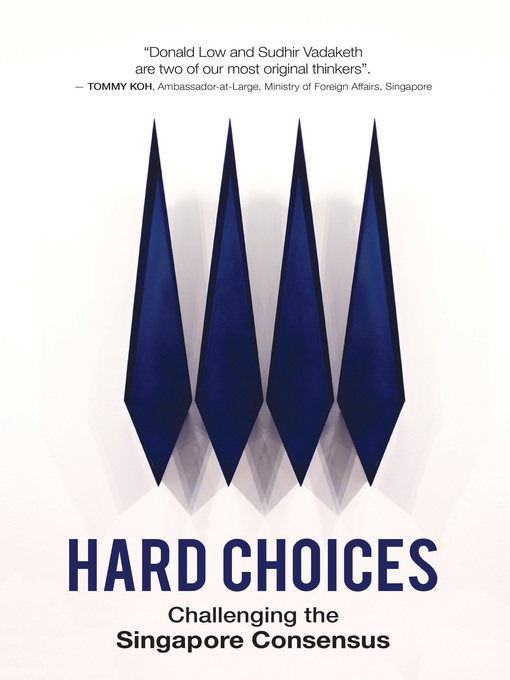Singapore is changing. The consensus that the PAP government has constructed and maintained over five decades is fraying. The assumptions that underpin Singaporean exceptionalism are no longer accepted as easily and readily as before. Among these are the ideas that the country is uniquely vulnerable, that this vulnerability limits its policy and political options, that good governance demands a degree of political consensus that ordinary democratic arrangements cannot produce, and that the country's success requires a competitive meritocracy accompanied by relatively little income or wealth redistribution.But the policy and political conundrums that Singapore faces today are complex and defy easy answers. Confronted with a political landscape that is likely to become more contested, how should the government respond? What reforms should it pursue? This collection of essays suggests that a far-reaching and radical rethinking of the country's policies and institutions is necessary, even if it weakens the very consensus that enabled Singapore to succeed in its first fifty years.
- Newly Added eBooks - Available Now
- The Hit List (Books We Love)
- Top 500 eBook Fiction
- Top 500 eBook Nonfiction
- Popular Romance
- Books you may have missed
- Health & Fitness
- Fantasy
- Historical Fiction
- Thrillers
- Crime
- Self-Enrichment
- Humour
- See all ebooks collections
- Newly Added Audiobooks - Available Now
- Top 500 Audiobook Fiction
- Top 500 Audiobook Nonfiction
- Business & Management
- Self-Enrichment
- Thrillers
- Foreign Language Study
- Humour
- See all audiobooks collections
- Newly Added
- Children’s Favorite Characters
- Most Popular Children's Titles
- Comic & Graphic Books
- Children's Read-Alongs
- Popular Teen Reads
- Science Fiction & Fantasy - Available Now
- Popular eBooks
- See all children & teen collections
- Chinese Titles - Adult
- Chinese Titles - Young Adults
- Chinese Titles - Children's
- 中文书籍
- Malay Titles - Adults
- Malay Titles - Young Adults
- Malay Titles - Children's
- Tamil Titles
- Tamil Titles - Children's
- See all language collections collections
